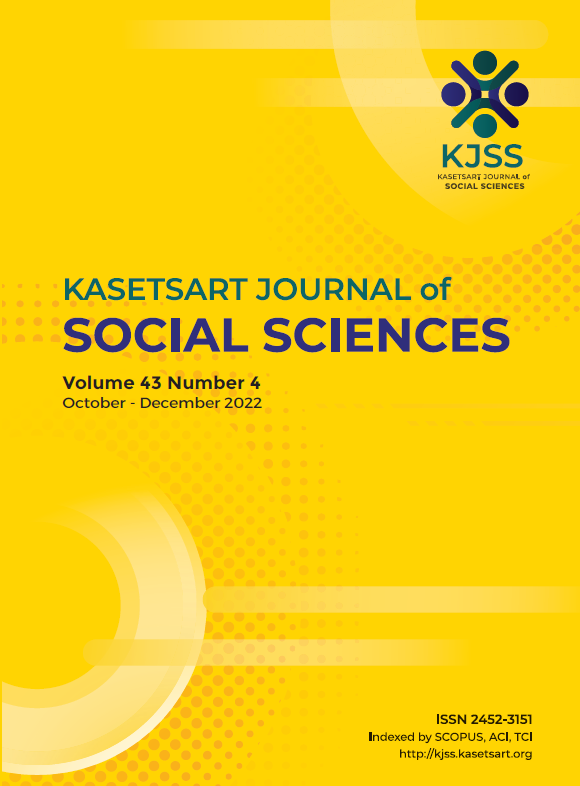A study on the required work competencies of graduates in the non-formal education program
Keywords:
egraduate users, necessary competencies for work, non-formal education program, proposed guidelines, studentsAbstract
This study on the necessary competencies for work required by graduate users from students who have graduated in the non-formal education program aims to: (1) study the necessary competencies for work required by graduate users from students who have graduated in the non-formal education program; and (2) propose guidelines for the development of students in the non-formal education program. The samples consisted of 5 respondents and 30 participants in the focus group. The data were collected using both quantitative and qualitative methods: questionnaires and focus groups. In addition, descriptive statistics reference, summary statistics, and content analysis were applied in this research. The results found that 1. The competencies comprised of two primary competencies: (1) core competencies include knowledge (e.g., being a leader with integrity, ethics, and professional faith, having the ability to apply knowledge and apply it in authentic contexts, etc.); skills (e.g., organizing learning, being knowledgeable, using information technology and digital technology, etc.); personal attributes (e.g., a lifelong learning lover and being able to inspire others to learn to continue and develop their own potential, etc.); and (2) functional competencies used in the working performances included knowledge (e.g., language for communication and information retrieval, professional program, information technology, and digital technology, etc.); skills (e.g., interpersonal communication skills, design thinking, and problem-solving skills, etc.); attributes (e.g., good personality and interpersonal and social integration, etc.) 2. The proposed guidelines for the development of students in the non formal education program include 4 main guidelines: (1) curriculum development or improvement and educational management; (2) knowledge and student development activities; (3) learning support system; and (4) quality assurance and learning success. The findings are beneficial to departments, organizations and educational institutions, and those working in the provision of education to apply these guidelines for curriculum development, learning activities planning, and further development of quality of all students.
Downloads
Published
How to Cite
Issue
Section
License

This work is licensed under a Creative Commons Attribution-NonCommercial-NoDerivatives 4.0 International License.
This is an open access article under the CC BY-NC-ND license http://creativecommons.org/licenses/by-nc-nd/4.0/










